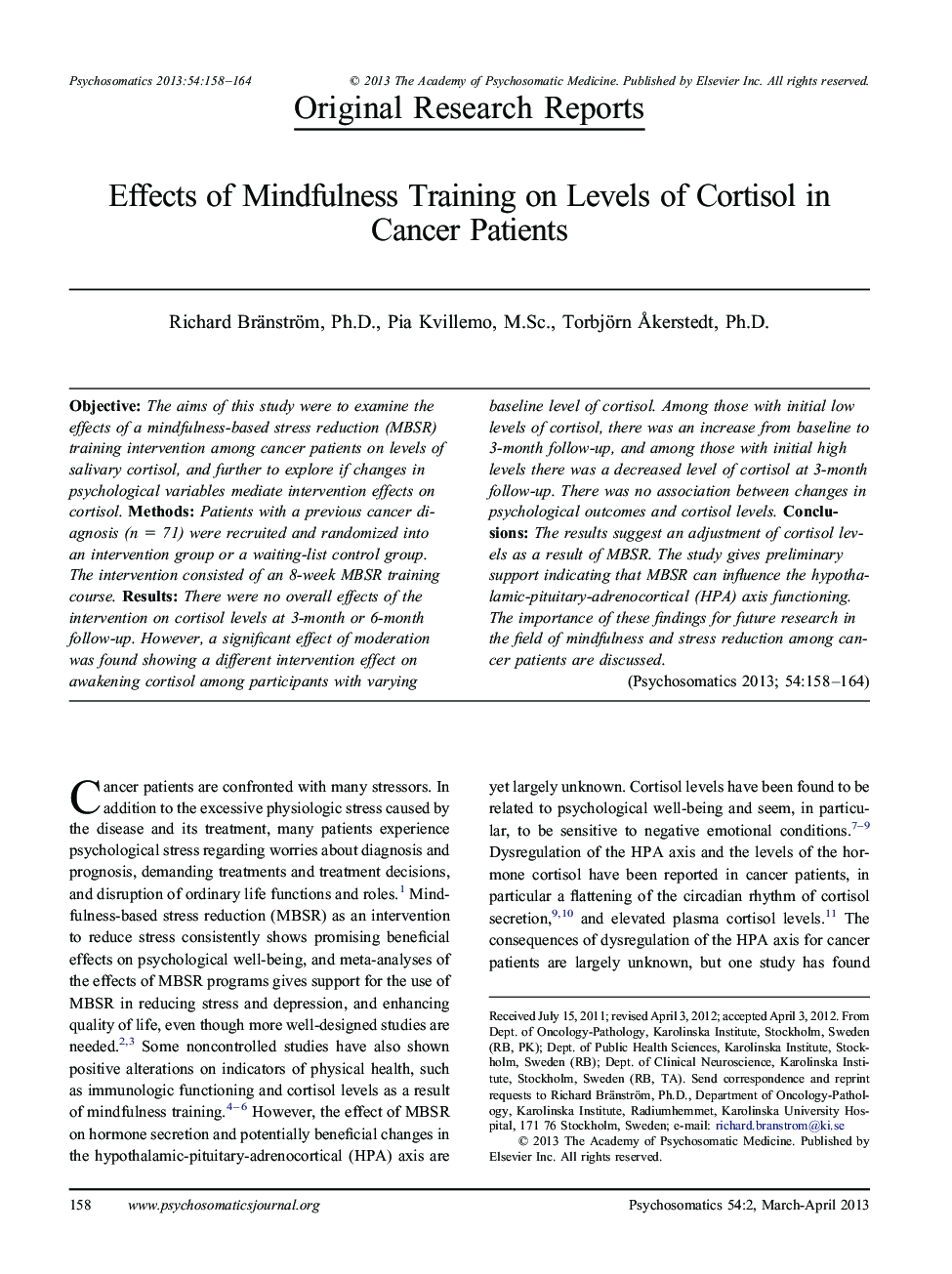| Article ID | Journal | Published Year | Pages | File Type |
|---|---|---|---|---|
| 337961 | Psychosomatics | 2013 | 7 Pages |
ObjectiveThe aims of this study were to examine the effects of a mindfulness-based stress reduction (MBSR) training intervention among cancer patients on levels of salivary cortisol, and further to explore if changes in psychological variables mediate intervention effects on cortisol.MethodsPatients with a previous cancer diagnosis (n = 71) were recruited and randomized into an intervention group or a waiting-list control group. The intervention consisted of an 8-week MBSR training course.ResultsThere were no overall effects of the intervention on cortisol levels at 3-month or 6-month follow-up. However, a significant effect of moderation was found showing a different intervention effect on awakening cortisol among participants with varying baseline level of cortisol. Among those with initial low levels of cortisol, there was an increase from baseline to 3-month follow-up, and among those with initial high levels there was a decreased level of cortisol at 3-month follow-up. There was no association between changes in psychological outcomes and cortisol levels.ConclusionsThe results suggest an adjustment of cortisol levels as a result of MBSR. The study gives preliminary support indicating that MBSR can influence the hypothalamic-pituitary-adrenocortical (HPA) axis functioning. The importance of these findings for future research in the field of mindfulness and stress reduction among cancer patients are discussed.
